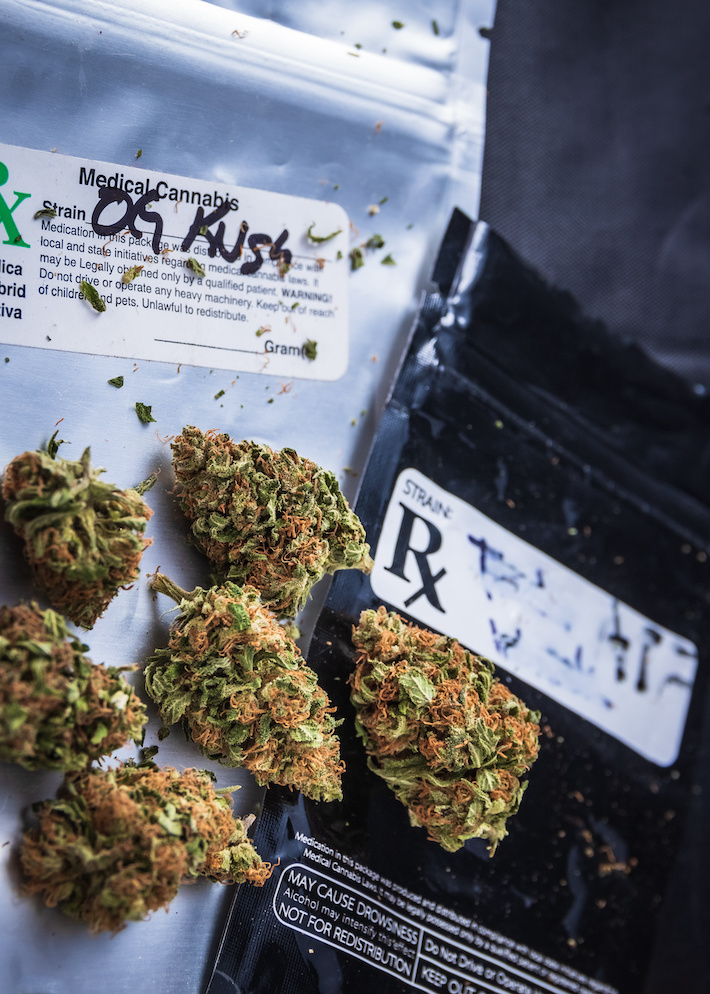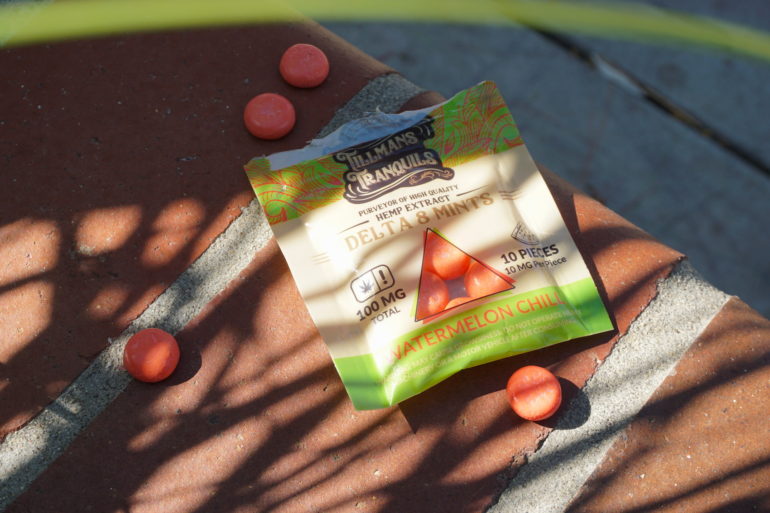Despite contradictory information circulating the internet, hemp-derived delta-8 THC is restricted in New York. Under state law, the sale, distribution, production and manufacturing of delta-8 products are not permitted. However, the law surrounding the use and possession of delta-8 is unclear.
Is Delta-8 THC Legal to Sell in New York?
No. Delta-8 THC products are restricted in New York.
The Cannabinoid Hemp Regulations (Section 114.8 (a)(11), page 24) prohibit cannabinoid hemp products which include “synthetic cannabinoids, or cannabinoids created through isomerization, including Δ8-tetrahydrocannabinol and Δ10-tetrahydrocannabinol.”
Since delta-8 THC is only present in very small quantities in the hemp plant and isomerization is necessary to obtain enough delta-8 for a product, this translates to an effective ban on all commercial delta-8 THC hemp products.
RELATED: Delta-8 THC Legality by State
Delta-8 THC Legislation Timeline for New York
Delta-8 derived from hemp hasn’t always been restricted in New York. This didn’t happen until November 2021, when the OCM passed regulations for the state’s Cannabinoid Hemp Program.
The key dates for delta-8 laws in New York are:
- 2015: New York first launched its Industrial Hemp Agricultural Research Pilot Program, limited to a small number of educational institutions. This was regulated by the Department of Agriculture and Markets, but few regulations addressed final hemp products.
- December 2018: The federal Farm Bill was passed.
- December 2019: Governor Cuomo signed S6184 (and A7680) into law. This established a regulatory framework for hemp and included things like testing requirements for manufacturers and extractors. Based on this, delta-8 was assumed to be legal in New York.
- October 2020: The Department of Health (DOH), briefly in control of the cannabinoid hemp program, issued proposed regulations.
- March 2021: The Office of Cannabis Management (OCM) was established following the legalization of marijuana in the state. They were also given control of the hemp program.
- May 2021: The DOH updated its proposed regulations in line with the public comments received on the initial draft. The new proposals explicitly ban delta-8 THC.
- November 2021: The Cannabis Control Board approved the OCM’s cannabinoid hemp regulations, which were based on the DOH’s proposal and explicitly prohibit delta-8 THC products, leaving their regulation to the state’s regulated marijuana programs.
While no subsequent legislation has changed the situation for delta-8, the OCM has published additional guidance on permitted and prohibited hemp products for the industry.
Can Delta-8 THC Be Added to Food?
No, delta-8 THC is an impermissible food additive and cannot be added to foods, beverages, or marketed as a dietary supplement in the state of New York, outside of the state’s regulated marijuana program.
Moreover, since delta-8 THC has not been approved as GRAS, the FDA has sent out warning letters to companies marketing and selling delta-8 THC food products and dietary supplements in interstate commerce.
Can You Buy Delta-8 in New York?
You cannot legally purchase delta-8 THC products online or in physical retail stores in New York. Many online delta-8 companies have stopped taking orders from users located in the state. However, there are many reports that delta-8 THC is still available for sale at physical retail stores in New York.
Delta-8 Alternatives You Can Legally Buy in New York
While delta-8 products are not legal to buy in New York, hemp-derived delta-9 THC products remain theoretically legal to buy, provided they aren’t made through isomerization like delta-8.
However, in April 2023, the OCM sent an email to hemp companies in the state, emphasizing that they consider such high-THC hemp products a serious public health risk. They are working on emergency regulations to address this issue and to clarify the permissible THC limits for hemp products. So it’s likely that hemp delta-9 won’t be legally available for long.
Alternatives such as delta-10 and THC-O are banned in New York under the law cited above. However, HHC is a natural hemp component and is produced via a chemical process called “functionalization.” Under the current regulations, HHC products are most likely permissible.
Cannabis itself is also legal to buy, possess and use in New York.

Are There Age Restrictions on Delta-8 THC Products?
Since delta-8 THC products are not permitted, age restrictions are irrelevant. However, New York has imposed age restrictions (Section 114.16 (a), page 44) for other hemp-derived products including any inhalable hemp product which can only be sold to adults over the age of 21.
Violations are punishable by a maximum $1,000 civil penalty in the first instance.
Can You Consume Delta-8 THC in Public in New York?
It’s unlikely you’ll be punished for public consumption of delta-8 THC in New York, provided you do so in an area where smoking is permitted. However, since the law around possession of delta-8 is unclear, any public consumption would be at your own risk. If you break the clean air rules, you can be fined up to $2,000.
Can You Drive Under the Influence of Delta-8 THC in New York?
No. Since delta-8 THC is intoxicating, it is covered under state law on driving while intoxicated, by default.
For a first violation, you’ll receive a mandatory $500 to $1,000 fine, up to a year in jail and your license will be revoked for six months. Subsequent offenses within 10 years have higher penalties.
Can You Travel to New York With Delta-8?
It’s unlikely. Since the laws around the use and possession of delta-8 in New York are unclear, there is risk traveling to New York with delta-8 THC.
Closing Thoughts: The Future for Delta-8 in New York
The future for delta-8 THC in New York looks like more of the same. State regulators have made it clear delta-8 products are not permitted in New York’s hemp program, citing safety and regulatory concerns. There are no concrete plans to allow its use, possession or sale outside of the regulated marijuana program. That said, while delta-8 THC is currently permitted in New York’s medical marijuana program, it is still unclear if it is permissible in the state’s adult-use program.
References (2)
- Basas-Jaumandreu, J., & de las Heras, F. X. (2020). GC-MS metabolite profile and identification of unusual homologous cannabinoids in high potency cannabis sativa. Planta Medica, 86(05), 338–347. https://doi.org/10.1055/a-1110-1045
- Tagen, M., & Klumpers, L. E. (2022). Review of delta‐8‐tetrahydrocannabinol (Δ8‐THC): Comparative Pharmacology with Δ9‐THC. British Journal of Pharmacology, 179(15), 3915–3933. https://doi.org/10.1111/bph.15865
